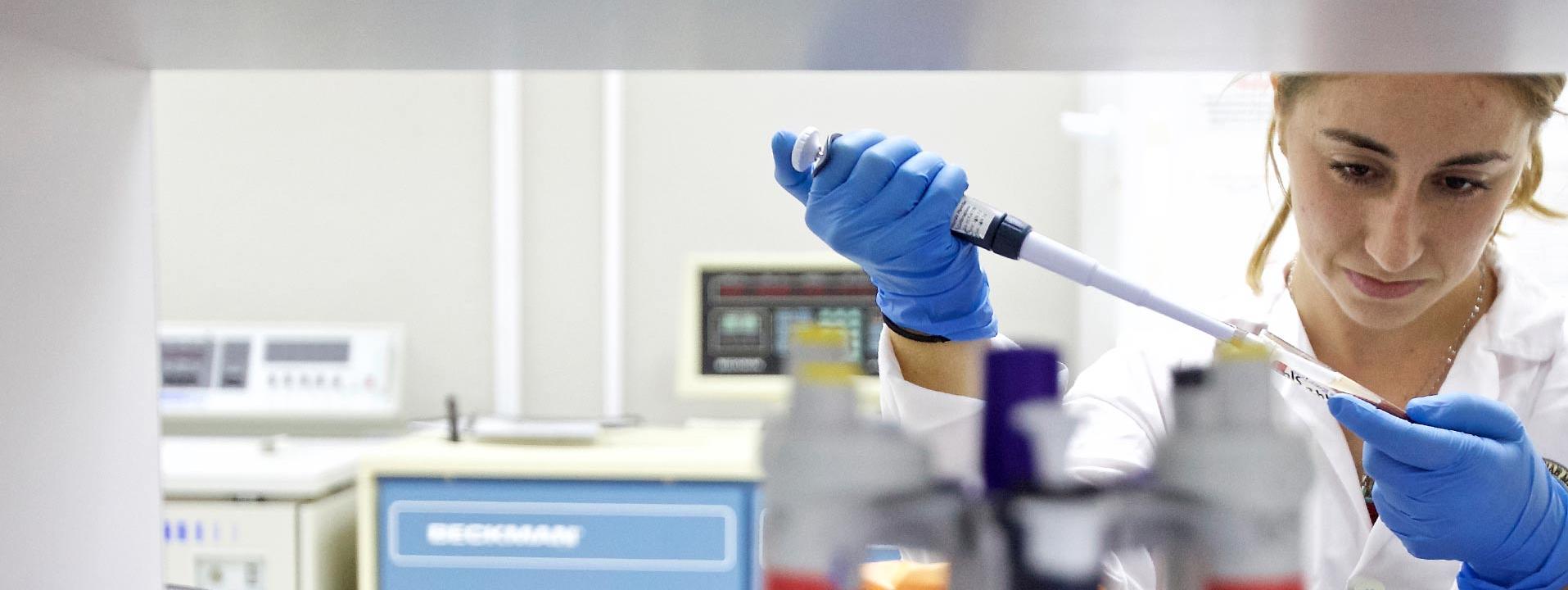LEADING INNOVATION, GENERATING SOLUTIONS
Remarkable research encompasses the integration of four core areas - Scholarly Productivity, Student Engagement, One Health, and Tropical Focus - that will elevate and distinguish Ross Vet as unique among academic institutions in the Caribbean region with its functional capacity to conduct research that encompasses One Health – the integrative effort to attain optimal health for people, animals, and the environment.
GRANTS MANAGEMENT OFFICE
Providing pre and post award administration of sponsored projects to the University
Ross Vet provides intramural seed funding to initiate projects that can then be used to develop proposals for extramural funding. Intramural funding is limited to one- year and a maximum budget of $25,000. Requests are due by February 15 for July 1 project start, if funded. Researchers must submit proposals to Center Directors.
Investigator Resources for Extramural Funding
The Grants Management Office (GMO) plays a pivotal role in all Ross Vet extramural research and program development and management by providing research administration services, systems, policies and processes to Ross Vet project investigators and their support staff. The GMO office can provide templates and guidance in completing all submission requirements.
Regularly review the following sites for updated RFPs:
National Institutes of Health>
NOAA Office for Coastal Management>
All grant proposals must be reviewed by the Department Head and Center Director. After review and approval by the Dean, the GMO will then either submit on your behalf, or send you approval to submit your proposal directly to the granting agency.
Ready to start a proposal? Connect with the Grants Management Office> RUSVMGrants@rossvet.edu.kn.
RESEARCH COMPLIANCE
Institutional Review Board
The Institutional Review Board, or IRB, is a committee that is required by U.S. federal law to protect the rights and welfare of human subjects participating in research activities. The committee meets this mandate by reviewing proposed and ongoing research activities, ensuring they meet specific criteria for approval. U.S. federal law, commonly referred to as 45 CFR 46, formally, the Code of Federal Regulations at Title 45-Public Welfare, Department of Health and Human Services, Part 46-Protection of Human Subjects, is specific to research conducted or supported by a federal department or agency. However, many institutions, including Ross Vet, voluntarily apply some or all subparts of 45 CFR 46 (also referred to as the “Common Rule”) to all research conducted by their investigators, regardless of status or source of funding.
The IRB’s function, make-up, and authority are governed by federal law, but meeting the regulations is done on an institution-specific level. The IRB ensures that valid studies meet the ethical mandates of the Belmont Report, and the legal mandates of U.S. federal law. For more information and assistance, please contact the IRB Administrator at: RUSVMIRB@rossvet.edu.kn.
Animal Welfare Assurance
Ross Vet follows the Guide for the Care and Use of Laboratory Animals, NRC 2011, 8th Edition, the Animal Welfare Act as implemented by Title 9, Code of Federal Regulations (CFR) of the U.S., the AVMA Guidelines on Euthanasia (2020), and any published guidance from the government of St. Kitts as guidelines for standards of care and use of animals. All institutions that use vertebrate animals for research, teaching, research training and biological testing are required to create an Institutional Animal Care and Use Committee (IACUC) to oversee and evaluate all aspects of the institution's animal care and use program. The IACUC is a self-regulating body which derives its existence from the Animal Welfare Act and the Health Research Extension Act and its amendments, which are administered by the National Institutes of Health (NIH) through the Office of Laboratory Animal Welfare (OLAW).
The Institutional Animal Care and Use Committee (IACUC) at Ross Vet serves as a resource for investigators, faculty, staff and students using animals in teaching and in research to ensure that all animal use is in accordance with the highest ethical, humane, and scientific principles and complies with all regulations. IACUC is responsible for reviewing all protocols involving animal use, inspecting animal facilities and laboratories, and overseeing training and educational programs.
AAALAC ACCREDITATION
Ross Vet is proud to have received accreditation by AAALAC International in 2019. AAALAC International is a voluntary accreditation program that evaluates organizations that use animals in research, teaching or testing and those that meet or exceed AAALAC standards are awarded accreditation. The university will be re-evaluated every three years in order to maintain its accredited status. AAALAC International accreditation demonstrates that an institution is serious about setting, achieving and maintaining high standards for animal care and use and committed to animal welfare in science. AAALAC International offers the only international accreditation for animal care and use programs, and it has become recognized around the world as a sign of quality and good science.
Ross University School of Veterinary Medicine's (RUSVM) Veterinary Clinic is accredited by the American Association for Accreditation of Laboratory Animal Care (AAALAC, www.aaalac.org) as a school. The accreditation focuses on animals used in teaching and research environments.
Ross Vet received full accreditation on July 16, 2019, from AAALAC International, an organization that promotes the humane treatment of animals in science through voluntary accreditation and assessment programs.







